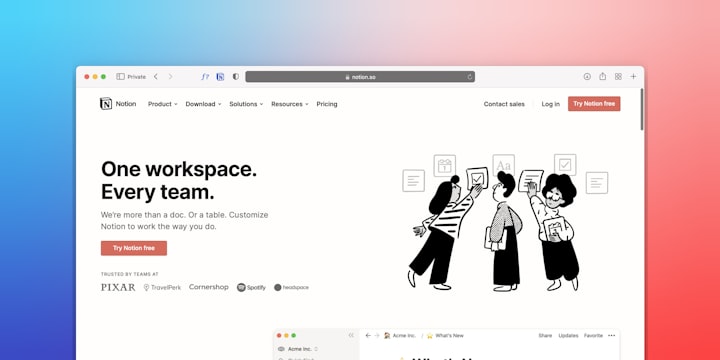
I've managed online publications for over a decade. In 2016, I was working with a team of over 100 writers and photographers. Looking back, I believe this was the golden age of online indie publishing.
Nowadays, companies run the blogosphere, and the digital writing landscape looks more like a Babel tower of content where it's becoming increasingly difficult to find a place to settle.
I've been debunking the idea that generative AI writing assistants like Jasper or ChatGPT have the potential to make it even more difficult for authors to make a living with their writing.
AI is still in its infancy, and these deep-learning copywriting bots are already a dime a dozen.
My Instagram feed keeps bugging me to try out a new AI tool every day if we know what I mean, and I bet you do.
Personally, I've tested many AI assistants, and from my perspective, it's still one of the best innovations out there for both writers and editors if you look at it as nothing more than what it is: a tool.
But I digress. All this racket around AI is really getting on my nerves lately.
So let's get down to business and discuss the role of publication editors in the ever-expanding universe of content publishing and how they will play a key role in boosting the best stories crafted by human writers.
My role as a publication editor
I don't see myself as a writing concierge. I'm a playmaker of quality content. I want to ensure that every piece of content lives up to its promise.
I'm not here to review submitted articles, edit them for accuracy and clarity, and make sure that the overall quality of the publication remains high.
I'm responsible for ensuring that our readers get the most out of their reading experience.
Still, I'm also here to help writers be successful.
As a writer, it's easy for you to get so caught up in the creative process that you forget about the other aspects of writing, like marketing, networking, and self-promotion.
But if you want to be successful, these are all important elements of your career.
That's why I'm here: not just to provide writing tips and inspiration, but also to help writers take their careers to the next level.
This involves working with writers to ensure their stories are told effectively, as well as engaging with readers to understand what they are looking for.
Hence, I strive to ensure that every piece of content meets the platforms' standards and finds its way to the right audience.
That's why it's crucial to have your own editorial standards in place in order to ensure every piece submitted receives the same treatment across the board during the editing and decision-making process.
New editorial challenges
But being an editor isn't just about having some technical skill set; it also involves having the emotional intelligence required to do this job well—skills that allow us to connect with both our readers and our writers in a reciprocal symbiosis.
Emotional intelligence separates humans from machines. In a world increasingly run by algorithms, human editors will separate the wheat from the chaff.
We will stand alongside authors in providing the audience with true stories devised by real thoughts and crafted by human hands.
We will make sure that the rise of the algorithm does not lead to the age of the monolith.
How do I decide whether to publish a piece of content or not?
I've always tried to learn as much as possible about the various facets of the editorial workflow.
One thing that I've learned over time is that there are different types of editors, some focusing on content creation itself while others value quality control.
In my experience, seasoned editors can distinguish between good and bad content; they know how to decide based on the quality of their work rather than just based on what they want or expect from others.
When deciding whether or not someone should publish your article, it's important for us all to remember that we're not gatekeepers; we're pathfinders.
The ultimate insights
As a publisher, your job is to find out what makes your publication stand out from other publications.
It can be very difficult for publishers because there are so many things that need to be considered when you roll the publisher's dice:
Who has the potential to write better articles in a certain niche?
What's their experience level?
Where did they get their knowledge from?
How long have they been working as an in-house writer?
Closing thoughts
I hope this article has helped you understand why I am so fond of my role as a publisher.
It's a job that requires a lot of hard work, creativity, and perseverance, but it is also one that allows me to make a difference in the lives of others by helping them publish their amazing pieces of content.
People will return to read more about what you have to say if you show them you care and will share your knowledge and insight.

Check out Originality.AI, Jasper AI, Notion AI, or Undetectable.AI, and don't miss out on special gifts and all the latest and most innovative tools for creators. If you find my affiliate links, I may earn a small commission at no additional cost to you, so I highly appreciated your support. Till next time, cheers. - Rui
About the Creator
Rui Alves
Hi, I'm Rui Alves, a teacher, army veteran & digital pathfinder. Author, alchemist of sound & Gen-AI artist.






Comments
There are no comments for this story
Be the first to respond and start the conversation.